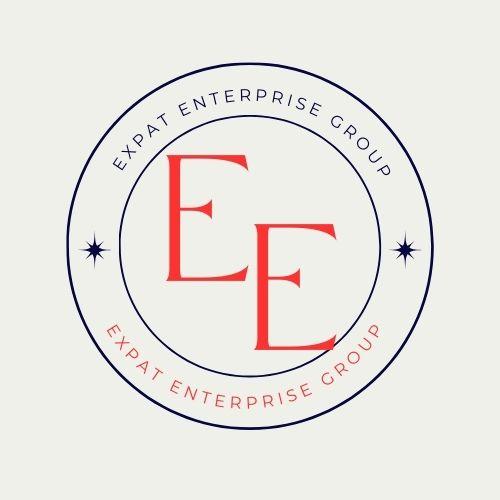Can Expats Incorporate and Own a Company in Thailand?

Thailand is a magnet for global entrepreneurs — from tech founders and restaurateurs to digital nomads seeking a tropical base. However, a common question among would-be business owners is: Can an expat legally incorporate and own a company in Thailand?
The short answer: Yes, expats can incorporate and own a company in Thailand — but with limitations and a few hoops to jump through. This guide breaks down how it works, what it costs, and how long it takes.
Thailand has long been a popular destination for expatriates seeking new business ventures. With its strategic location in Southeast Asia, vibrant culture, and growing economy, it's no surprise that many expat entrepreneurs are considering Thailand as a base for their startups. But is Thailand truly startup-friendly?
Thailand offers a dynamic environment for startups, especially in sectors aligned with the government's economic development plans. The country has made significant strides in improving its business infrastructure and regulatory framework, making it more conducive for entrepreneurs.
Ease of Doing Business
According to the World Bank's Doing Business 2020 report, Thailand ranked 21st out of 190 countries globally, reflecting its commitment to enhancing the business climate. Notably, Thailand's ranking in "Protecting Minority Investors" improved significantly, moving from 15th to 3rd place, indicating stronger safeguards for investors .
However, in the Asia-Pacific region, Thailand's position has seen some fluctuation. In 2023, the Asia Securities Industry and Financial Markets Association (ASIFMA) survey ranked Thailand 12th among 13 economies, highlighting areas where further improvements are needed .
Can Expats Own a Company in Thailand?
Yes, but not 100% in most sectors. Under the Foreign Business Act (FBA), certain types of businesses are restricted to Thai nationals or require special permission for majority foreign ownership.
There are three main ways expats can own a business in Thailand:
Thai Majority Company (most common)
- Foreigners own up to 49%
- Thai nationals own 51% or more
- Easier to register, no need for special permissions
Foreign Majority Company (with a Foreign Business License)
- Requires Foreign Business License (FBL) under the FBA
- Difficult and time-consuming to obtain
- Often granted for activities that bring significant economic benefit
BOI-Promoted Company
- Under the Board of Investment (BOI)
- Can be 100% foreign-owned
- Must meet criteria in targeted industries (e.g., tech, manufacturing, R&D)
- Offers tax incentives and work permit facilitation
Step-by-Step: How to Incorporate a Company in Thailand as an Expat
Assuming you're going with the most straightforward path — a Thai majority limited company — here's what the process looks like:
Choose a Company Name
- Submit 3 name options to the DBD (Department of Business Development)
- Approval typically takes 1–3 days
Prepare the Company’s Documentation
- Articles of Association
- Memorandum of Association
- Details of shareholders and directors
- Registered office address
- Proof of capital (minimum 2 million THB for employing foreigners)
Register the Company
- Submit documents to the DBD
- Pay the registration fee
- Takes 1–3 days once documents are in order
Tax Registration & VAT (if needed)
- Register with the Revenue Department
- Required if revenue exceeds 1.8 million THB/year or if you're importing/exporting
Apply for Work Permits and Visa (if you'll work in the company)
- Requires four Thai employees per foreigner for most companies
- Need 2 million THB in registered capital per work permit
- Apply via the Ministry of Labour
What’s the Cost?
Here's a ballpark for a standard Thai-majority company setup:
| Item | Estimated Cost |
| Name Reservation | Free |
| Company Registration | 5,000 - 10,000 |
| Legal Fees | 20,000 - 50,000 |
| Registration Capital | 1 -2 million (can be pledged, not all paid upfront) |
| Work Permit Application | 3,000 |
| Visa & Legal Fees | 10,000 - 30,000 |
Total startup cost: ~50,000–100,000 THB ($1,400–USD 2,800), not including actual operating expenses or office setup.
How Long Does It Take?
- Company Registration: 3–7 days
- Tax/VAT Registration: 1–2 weeks
- Work Permit & Visa Processing: 2–4 weeks
So you can typically go from idea to incorporation in 2–4 weeks, assuming documents and partners are ready.
Yes, expats can incorporate and own companies in Thailand — and many do successfully. But navigating local regulations, language, and ownership laws means it's essential to consult with a Thai legal or accounting firm experienced in foreign-owned business setups.
If you’re in a high-potential sector like tech, manufacturing, or green energy, you may want to explore the BOI route for full ownership and tax benefits. Otherwise, a Thai-majority company is often the fastest and most accessible way in.
Need help setting up your company in Thailand? Join Expat Enterprise — We can recommend trusted local providers or help you evaluate your business structure.
- Analysis
- Business News
- Business Starter
- Business Taxation
- Business Banking
- Business loans
- Company Formation
- Franchises Business
- Payment Processing
- Funding & Grants
- Legal & Compliance
- Money & taxation
- Export & Import
- Investing
- Marketing & Tools
- Invoice finance
- Technology
- Property
- Expatriate Guide
- Relocation
- Other



